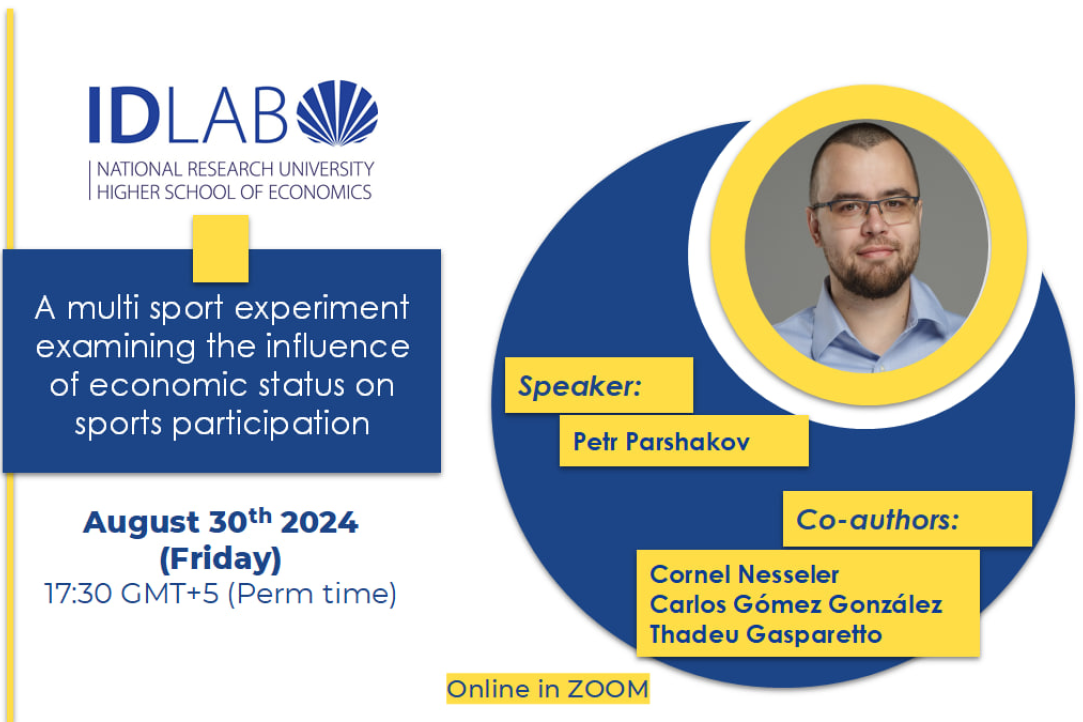The first IDLab workshop of the new academic year took place
On August 30, 2024, IDLab hosted the first workshop of the new academic year, which, as usual, was held in an online format. The event was attended by about 25 people, including lab staff and other attendees.

Petr Parshakov, Head of IDLab, was a speaker at the seminar. He presented the first results of a study conducted in co-author with Carlos Gomez-Gonzalez (University of Lausanne), Thadeu Gasparetto (Leeds Beckett University), Cornel Nesseler (University of Stavanger), Helmut Dietl (University of Zurich). In this study, an experiment was conducted to investigate the influence of “economic status” on sports participation.
In the course of the experiment, the research team sent requests for participation in trial training sessions to coaches of amateur sports clubs representing seven of the ten most popular sports in Germany, such as soccer, golf, handball, horseback riding, shooting, table tennis and tennis. Inquiries were made on behalf of fictitious applicants with typical local and foreign names to assess how they were perceived according to their expected cultural background. The experiment also included questions about club membership fees. Results showed that openness to applicants with foreign names varied significantly by sport, but questions about membership fees had no effect on the likelihood of receiving a response. Applicants with local names were 4% more likely to receive a response.
To evaluate the results of the experiment, in addition to classical logistic regression, the authors used the causal random forest approach, a modern machine learning method that allows for more accurate modeling of causal relationships and identification of hidden patterns in the data.
Thus, the first IDLab workshop not only successfully opened the new research season, but also generated a lively discussion. The topic attracted the attention of the audience, raised many questions and generated several important ideas for further research. The presented calculations are only the first steps, and we wish the authors inspiration and new scientific discoveries in the further development of this important and topical work.
